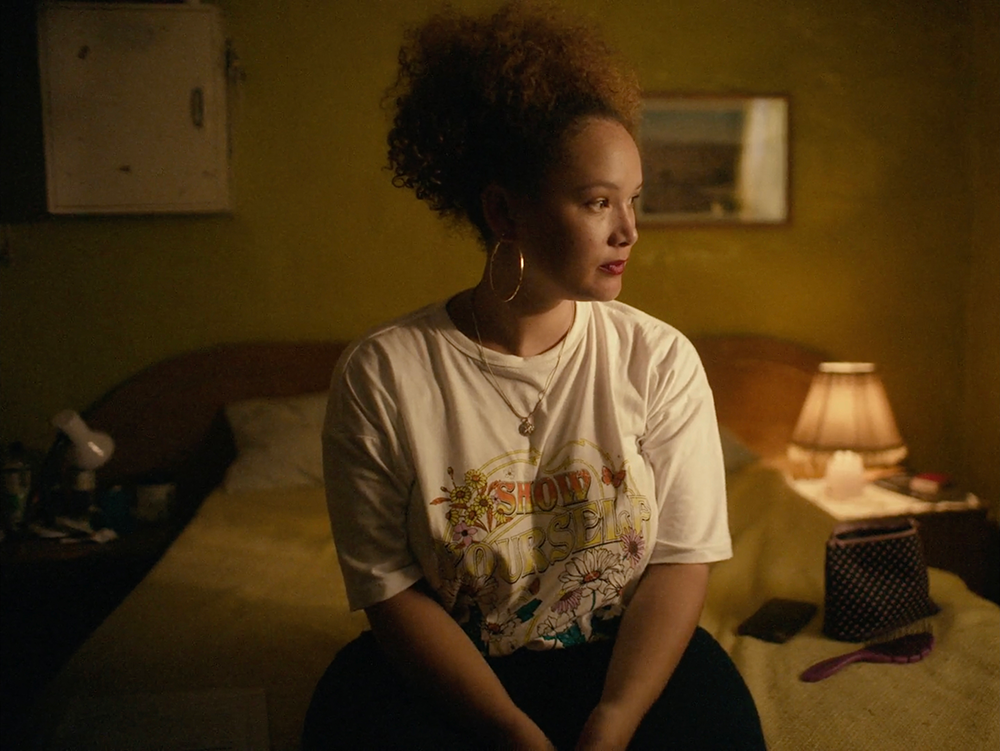
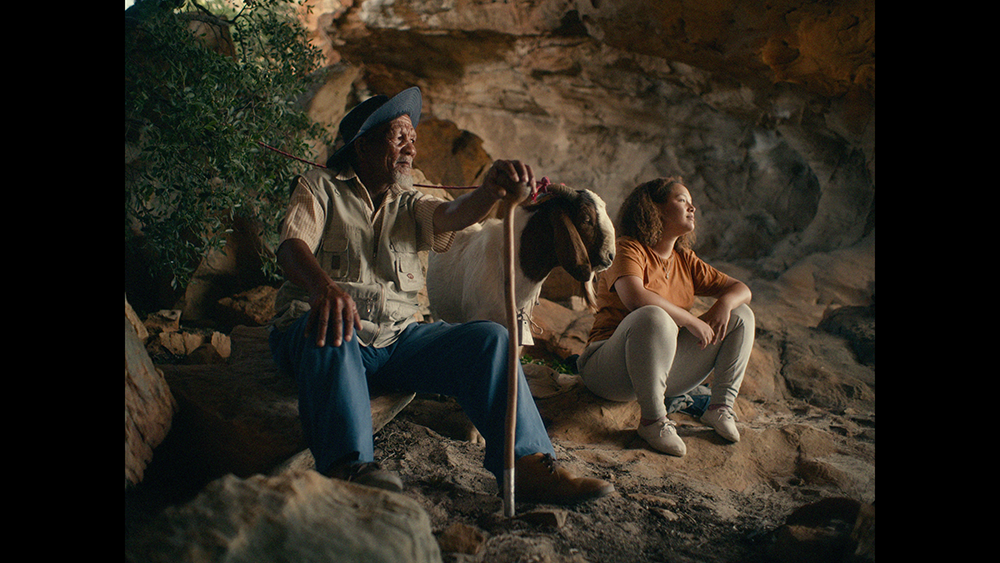
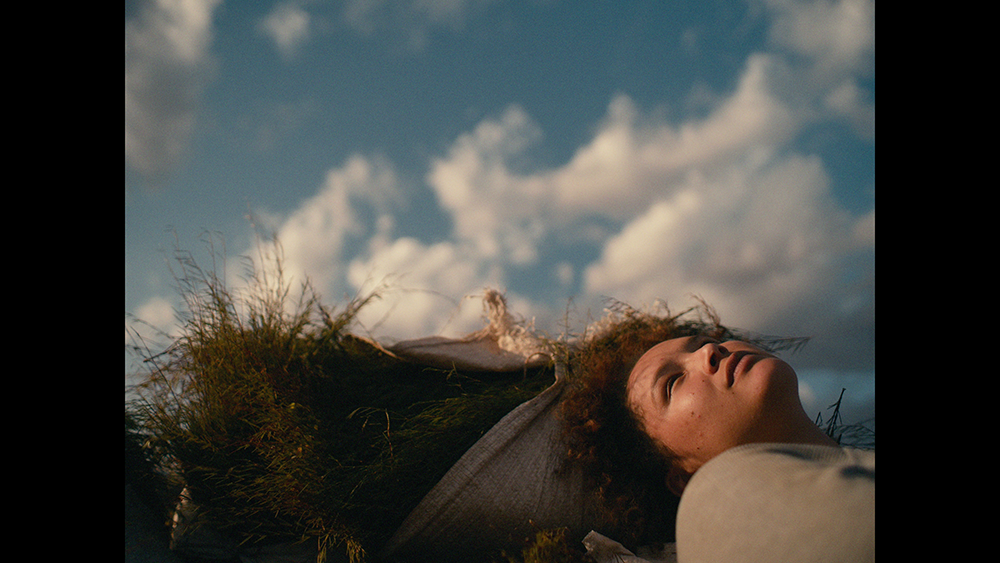
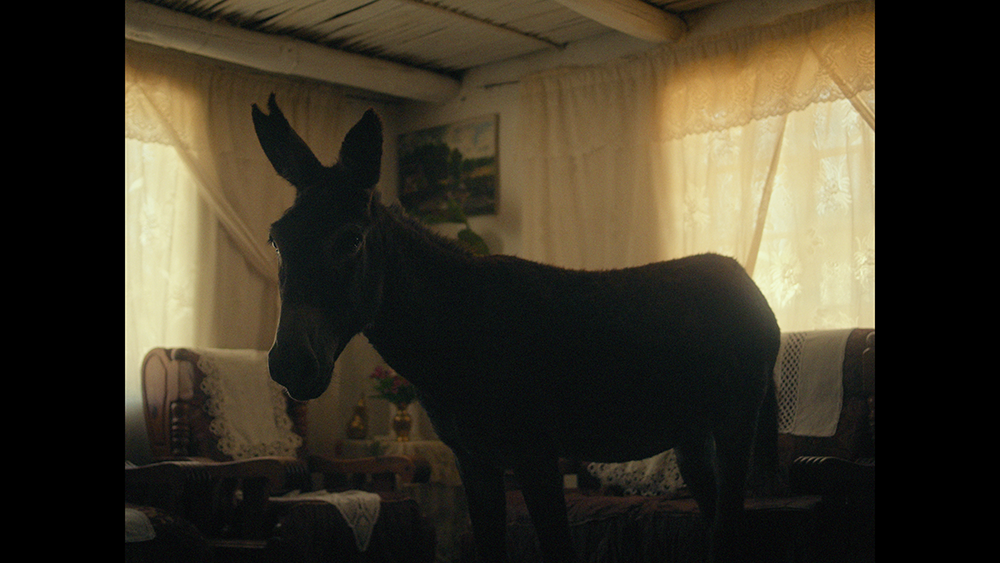
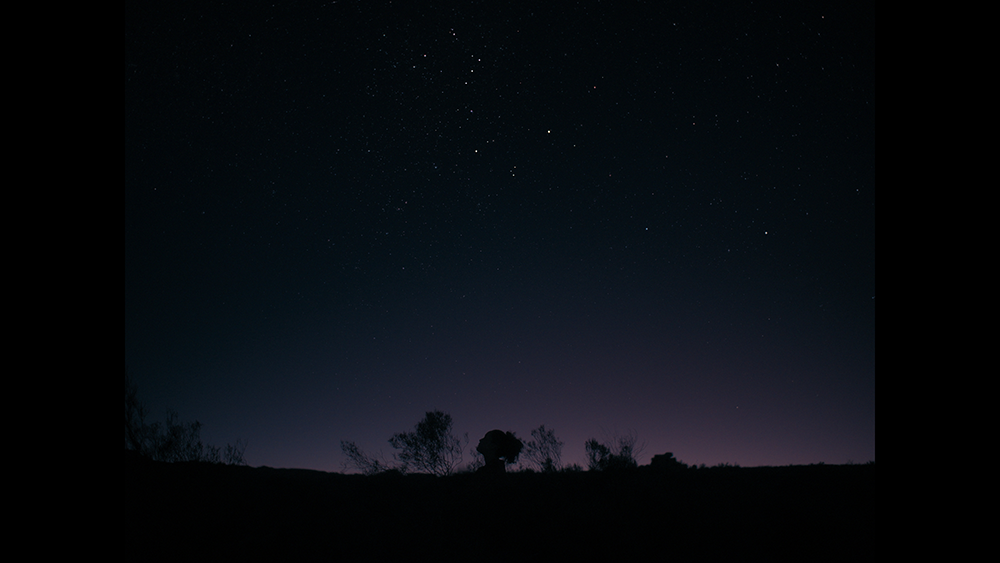
Feature Film: Carissa
The feature film Carissa, the debut of Jason Jacobs and Devon Delmar as writers and directors, tells the story of a young woman, played by Gretchen Ramsden, and her community in the heart of the Cederberg. A luxury gholf estate promises development but threatens the survival of the local rooibos tea farms.
The film premiered at the Venice International Film Festival last year, where it was warmly received. Jason and Devon hope that local audiences will see themselves in the main character, while also enjoying the enchanting cinematic experience.
They answered a few questions about the film, which will screen nationwide from 5 September, following its local premiere at the Silwerskermfees.
How would you describe the themes of Carissa?
Carissa explores the complex journey of self-discovery and coming of age while shedding light on the meaning and value of family and tradition, emphasising how responsibility often accompanies personal growth.
The film was developed over seven years. Tell us more.
The development of Carissa was profound. Living with the story for so long allowed us to tell it with depth and nuance. It was a continuous process of stops and starts, with a lot of traveling. It became a kind of “coming home” experience.
Over seven years, we spent a lot of time with Carissa – in our minds and on paper. Over time, we surrendered to what the story demanded from us. As writer-directors, we strive to develop honest scripts with human characters. While we remained true to the original script, we never confined ourselves to fixed ideas.
So, this isn’t a film that could be made in isolation?
The process behind Carissa was organic, honest and inspired. Everyone involved was passionate and committed to giving their time to the project. The film also magically depicts the day-to-day life of the Wupperthal community. We can’t overlook the contribution of the Kharkams community either. We were welcomed with open hearts and traditional knowledge was shared with us.
What drove the decision to set the story in Wupperthal?
Wupperthal is a community rich in deep, lived experience. It thrives through its farmlands, livestock farming, and of course, rooibos tea. While we don’t shy away from portraying the everyday social issues that affect small towns, our experience of Wupperthal is one of growth and progress.
Why did you cast local residents in the film?
It’s not our right to film in any location without giving its people the right to represent themselves. Knowledge keepers from the area can interpret the story truthfully, passionately and sincerely. They possess insights beyond the imagination of the writer.
Why blend fiction with a documentary style?
The script development greatly influenced this approach. From the start, we knew we wanted a style similar to the Dardenne brothers’ Rosetta, where the camera acts as a quiet observer in someone’s life. We had to ask: what does it mean when your grandmother disowns you, and you start feeling your inheritance slipping away? These are the questions we, as two people from different backgrounds, unpacked.
We both are fiction lovers who are drawn to the magical. It’s in our DNA. We’re born geeks and we feel compelled to help others understand the supernatural and healing power of stories.
Many people contributed to this vision, right?
We’re grateful for the influence and advice of our cinematographer, Gray Kotze. Also, the insight of musician Frazer Barry and the guidance of post-production manager Stephen Abbott. They shaped the film in meaningful ways. The film was produced with the directors by Deidré Jantjies and Annemarie du Plessis. Deidré’s company, Na-Aap Productions, is committed to telling stories about our indigenous heritage and fading traditions.
Why make the Cederberg’s natural surroundings such a central part of the film?
We started thinking about the potential of plants, animals and natural elements like wind and sun in the process of storytelling. As a young person, Carissa lives within this landscape, but she’s uninterested in anything beyond her bubble. Her face is glued to her phone, and she’s tuned into everything except the world around her – the stories that are embedded in the grazing of goats, dassies sunbathing on warm rocks, birds, geese, dogs and fish.
Then there are stories about more-than-human and more-than-animal experiences. Stories about plants. Stories about rooibos. Stories about the land. Stories about the wind.
Gretchen Ramsden is exceptional as Carissa. What was it like working with her?
We believe any writer or director gets only one chance to work with someone like Gretchen Ramsden in a lead role. Her passion for storytelling is masterful. She transforms in every scene and adapts perfectly to each moment. It’s liberating to work with her.
Gretchen’s professionalism, creativity and passion are phenomenal. Truly. She respects the story deeply, she understands that the story is bigger than you, and you should just be grateful you get to tell it.
